Meet the Team
The Team
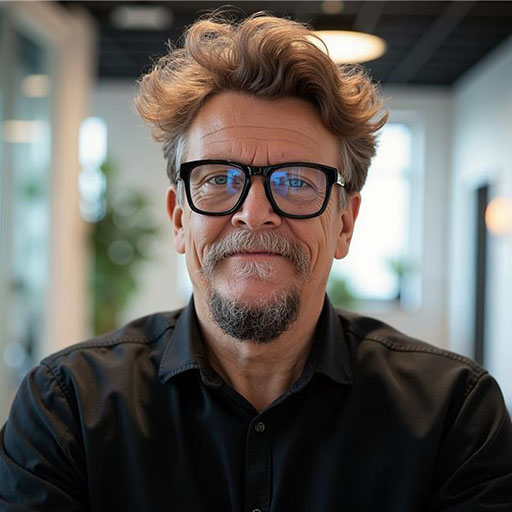
Robert Jenkins
Dr. Robert Jenkins holds a PhD in Molecular Neuroscience from the University of Cambridge and an MBA from IESE Business School. He has a solid track record in leading multidisciplinary teams, driving scientific innovation, and managing high-impact international projects. He is the current CEO of Linkcare Health Services, where he contributes his expertise in product development, technology transfer, and regulatory approval. Dr. Jenkins holds key positions at Ferrer InCode and Werfen, leading market access strategies, international agreements, and M&A processes in the in vitro diagnostics field. He also has extensive experience in global consulting and manages collaborative R&D projects involving clinical validation and market deployment across Europe, the United States, Latin America, and Asia.
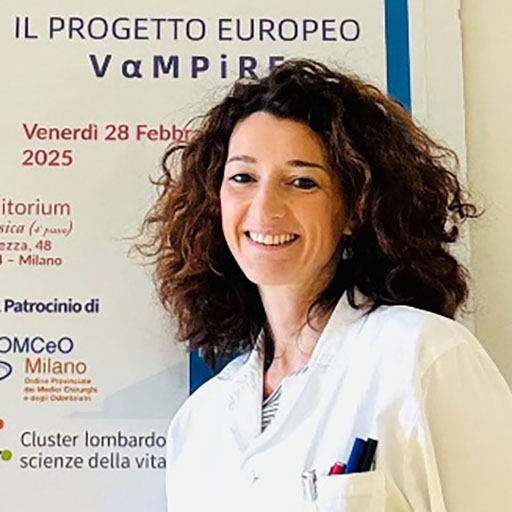
Elda Judica
Elda Judica, MD, is Neurologist, Neurophysiologist and Senior Researcher at Casa di Cura Igea, Milan. She is also Director of Igea Biobank, responsible of the Centers for Cognitive Disorders and Dementia and for the Rare Diseases. From 2018 she has been responsible for the clinical coordination of national and international European-funded projects such as Virtual Coaching activities for rehabilitation in elderly (vCare), pain in stroke (PainRelife), integrated care in Parkinson’s Disease (ProCare4Life), and more recently for the Horizon Europe project VaMPiRE on validation of biological biomarkers in Parkinson’s Disease. She is also actively involved in several clinical pharmacological trials as Sub investigator on Alzheimer’s Disease and Principal Investigator on CIDP.

Mayca Marín
Mayca Marín is General Health Psychologist and Social Worker specialized in gerontology and innovation. She is the European and National Project Coordinator at APM, leading initiatives to improve life quality for people with Parkinson’s disease. These include projects on health and social care, therapeutic support, volunteering, leisure, community engagement, and tech integration. She plays a key role in coordinating European projects promoting personalized, integrated care for older adults. Her expertise includes project management, cross-sector collaboration, and implementing innovative strategies. This is possible thanks to the work of APM’s team of 60+ professionals and 100+ volunteers supporting over 1,800 people and families in Madrid.)
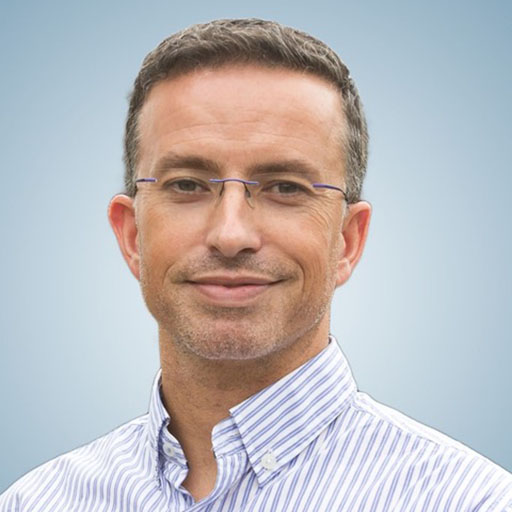
Tiago Outeiro
Tiago Outeiro graduated in Biochemistry at the University of Porto and did his PhD thesis at the Whitehead Institute for Biomedical research – MIT. Tiago was a Postdoctoral Research Fellow in the Department of Neurology of the Massachusetts General Hospital, Harvard Medical School, and is currently Full Professor and the Director of the Department of Experimental Neurodegeneration at the University Medical Center Goettingen, in Germany.
Tiago holds a joint Professor position at Newcastle University in the UK. Tiago has authored >360 research articles and participates in various international boards and in collaborative projects with the aim of identifying the molecular basis of neurodegenerative disorders such as Alzheimer’s and Parkinson’s disease.
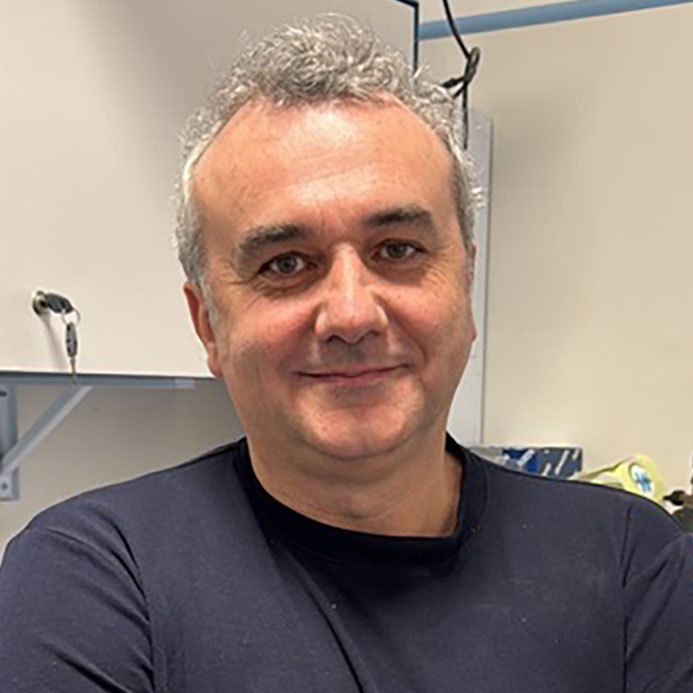
Marco Feligioni
Marco Feligioni, Ph.D., ist Pharmakologe und leitet das Labor für posttranslationale Proteinmodifikationen und Neurotransmitter-Freisetzungsmechanismen am Europäischen Institut für Hirnforschung (EBRI) in Rom. Sein Forschungsschwerpunkt sind die molekularen Mechanismen neurodegenerativer Erkrankungen wie Alzheimer, Parkinson und ALS. Er untersucht den Einfluss posttranslationaler Modifikationen – insbesondere der SUMOylierung – auf neurodegenerationsbezogene Proteine, um deren schützende oder schädliche Rolle zu bestimmen. Darüber hinaus erforscht er die SUMOylierung als peripheren Biomarker. Dr. Feligioni ist Autor zahlreicher Publikationen und Initiator und wissenschaftlicher Koordinator des VaMPiRE-Projekts sowie der Rolle des EBRI im Konsortium.

Raniero Romagnoli
Raniero Romagnoli is the CTO at Almawave. Within Almawave Group he is also CEO at OBDA Systems. He is an expert in AI and NLP and he drives the company technology strategy while managing technical teams of R&D and Innovation and the product group. Raniero actively participates in various national and international initiatives in the field of AI, also in collaboration with market associations, research centers and academies, and is member of the quality assurance committee of different universities and member of a European language technology industry association. He is currently a contract professor at two universities and a business school, teaching AI and ML both to Executive and MBA students and to university students.
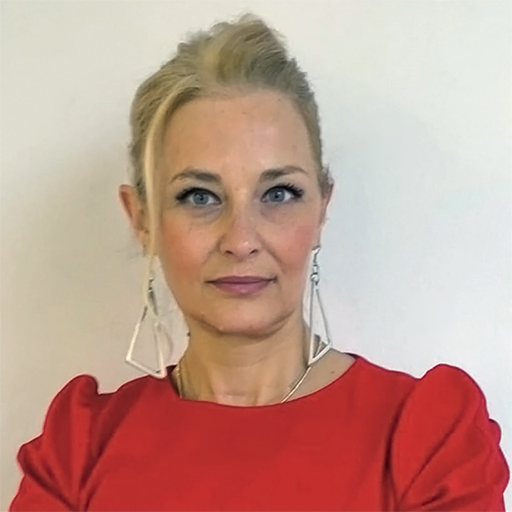
Mariarosaria Incoronato
Mariarosaria Incoronato, Ph.D., is a molecular biologist with over 20 years of experience in clinical research. She earned her Ph.D. in Genetics of Microorganisms from the University of Naples “Federico II” in 2004. From 2005 to 2022, she worked as a biologist and researcher at SDN/IRCCS-SDN S.p.A., and also held teaching roles at the University of Naples “Federico II”. She has coordinated several research projects funded by the Italian Ministry of Health, focusing on biomarkers in oncology, fatty liver, and heart failure. She is the author of 46 international publications (h-index: 24). Since 2022, she has been Scientific Assistant at Synlab Italia, supporting scientific research and health innovation.
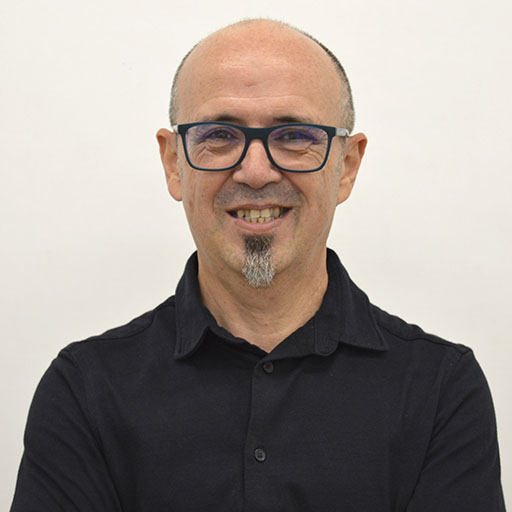
Salvador Ventura
Salvador Ventura is Professor of Biochemistry and Molecular Biology at UAB, ICREA Acadèmia researcher, and since 2024, Scientific Director of I3PT-CERCA. He earned his PhD in Biological Sciences in 1998 and trained at EMBL-Heidelberg, Harvard Medical School, and Karolinska Institutet. He leads the “Protein Folding and Conformational Disorders” group at IBB-UAB, which he directed from 2017 to 2020. His lab integrates computational and experimental approaches to develop therapies targeting protein aggregation. He has led 47 competitive projects, 11 industry collaborations, authored over 310 papers, supervised 20 PhD theses, co-invented 19 patent families, and co-founded Eureka NanoBioEngineering. He ranks among the top 2% most influential scientists globally and has received major national awards for his research excellence.
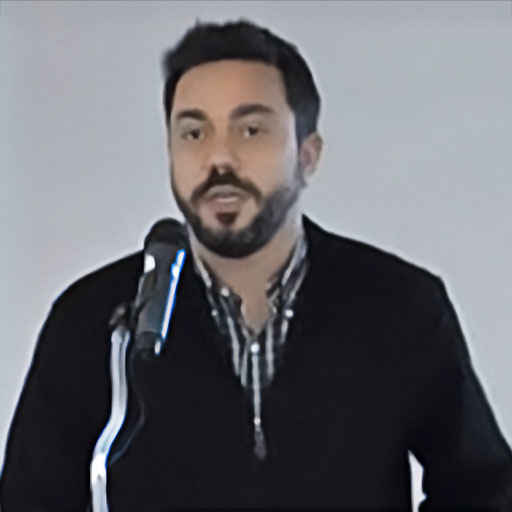
Dimitrios Kazis
Dr. Dimitrios Kazis is an Associate Professor of Neurology at the School of Medicine, Aristotle University of Thessaloniki, and Head of the 3rd Department of Neurology at “G. Papanikolaou” Hospital. He earned his MD and PhD from Aristotle University and completed advanced training in Neurology, Psychiatry, and Clinical Neurophysiology in the UK, and the USA. His clinical and research focus includes Parkinson’s disease, MS, and Alzheimer’s disease. He has participated in numerous national and international studies and published 76 research articles indexed in PubMed. He is actively involved in several international boards and collaborative projects for Alzheimer’s and Parkinson’s disease.
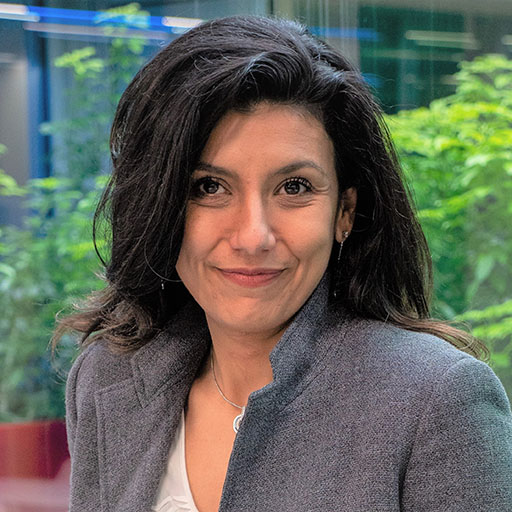
Chiara Guerrera
Chiara Guerrera, PhD, HDR
Director, Translational Proteomics Lab, INSERM, Paris. Expert in mass spectrometry-based proteomics for precision medicine. Leads platform development at Necker Hospital with over 100 collaborations. PhD (UCL), postdoc at WIBR. Technologies: DIA-MS, ion mobility, SILAC, ITRAQ. Co-organizer of national proteomics schools/events, jury member for HCERES, PhD & HDR. 103 publications (H-index 26). Grants: Horizon EU, RHU, ANR, etc. Multilingual: IT, EN, FR, ES.
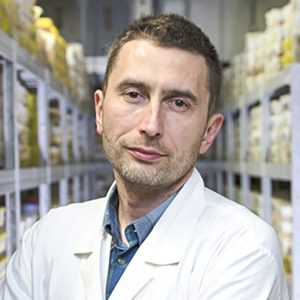
Tomasz Stępień
Tomasz Stępień is an Associate Professor of Medical Sciences at the Department of Neuropathology, Institute of Psychiatry and Neurology in Warsaw. He heads the Polish Brain Bank, one of the largest worldwide, and serves as Secretary of the Polish Association of Neuropathologists. He initiated the “Digital Brain” project and develops digital tools for neuropathology. He is the author and co-author of numerous publications in neuropathology, psychiatry, and neurology. His research focuses on neurodegenerative diseases and the interface between psychiatry and neurology. He holds a patent, teaches, promotes science, and coordinates the Polish part of the Horizon Europe project VaMPiRE.
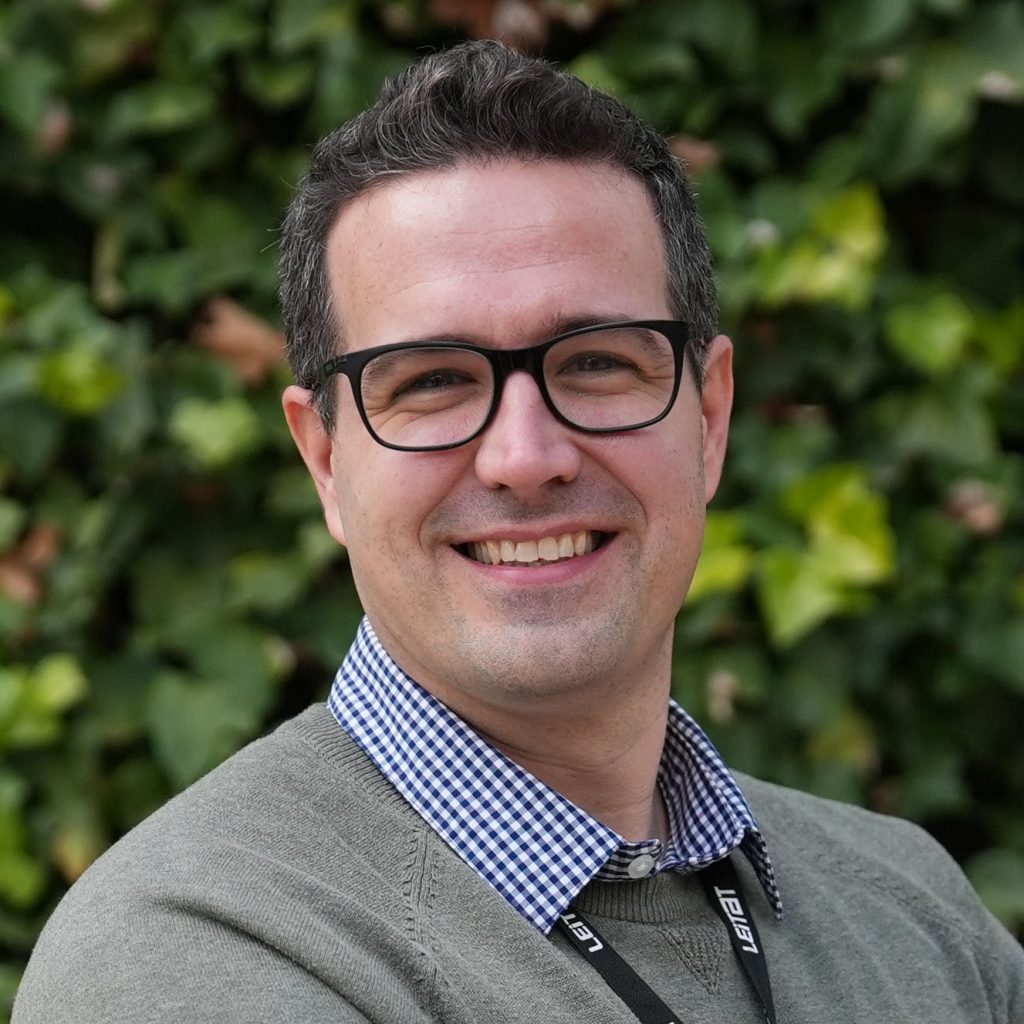
Joan Marc Cabot
Dr. Joan Marc Cabot leitet die Gruppe für diagnostische Geräte am LEITAT Technologiezentrum, wo er seit 2018 als Hauptforscher tätig ist. Seine Forschungsschwerpunkte liegen auf patientennaher Diagnostik, Lateral-Flow-Tests und fortschrittlichen mikrofluidischen Plattformen zur schnellen Krankheitserkennung. Dr. Cabot erwarb seinen Bachelor- und Doktortitel in Analytischer Chemie an der Universität Barcelona und war als Forscher am ARC Centre of Excellence for Electromaterial Science (Australien) tätig, unter anderem im Rahmen von Forschungsaufenthalten an der University of Washington (Australien) und der Dublin City University (Irland). Mit über 15 Jahren Erfahrung hat er innovative Diagnoselösungen entwickelt, die Biosensoren, Elektrofluidik und Organ-on-a-Chip-Systeme integrieren.
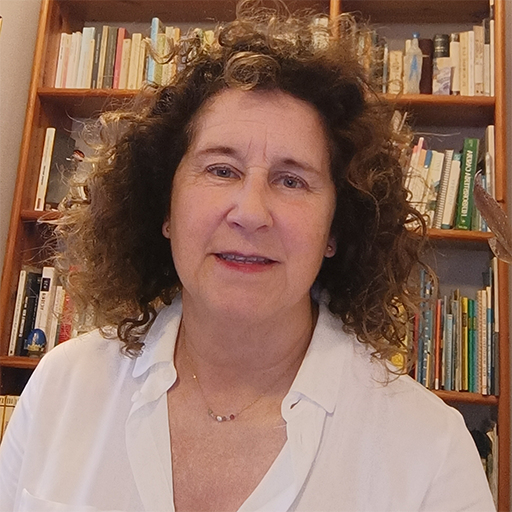
Maria Teresa Fernàndez
M. Teresa Fernández ist Ordentliche Professorin für Biochemie und Molekularbiologie an der Universität Oviedo und Direktorin des Instituts für Biotechnologie von Asturien (IUBA). Sie hat Chemie studiert und ein Aufbaustudium in Biochemie absolviert. Als Postdoktorandin arbeitete sie am National Cancer Institute (NIH, USA). Gemeinsam mit Dr. A. Novelli leitet sie seit 1990 eine Forschungsgruppe im Bereich der Neurowissenschaften an der Universität Oviedo. Ihre Forschung konzentriert sich auf die Mechanismen der Neurotoxizität und Neuroprotektion, wobei sie Primärkulturen von Neuronen und Gliazellen des zentralen Nervensystems verwendet, sowie auf die Untersuchung neuronaler elektrischer Aktivität mit der MEA-Technologie (Microelectrode Arrays) zur Analyse extrazellulärer Signale, die von in vitro auf Mikroelektroden wachsenden neuronalen Netzwerken erzeugt werden.

Giovanni Fabbrini
Die Abteilung für Humanneurowissenschaften der Sapienza-Universität Rom vereint Grundlagenforschung und klinische Forschung in den Bereichen Neurologie, Psychiatrie, Neurochirurgie und Psychologie. Sie blickt auf eine Tradition zurück, die bis ins Jahr 1883 reicht, und wird seit 2021 von Prof. Giovanni Fabbrini geleitet. Die Abteilung ist bekannt für bedeutende Beiträge wie die Elektrokrampftherapie. In den letzten Jahrzehnten hat sie sich durch nationale und internationale Kooperationen, hochrangige Publikationen und wissenschaftliche Veranstaltungen stetig weiterentwickelt und ihre starke Rolle in den Neurowissenschaften und der klinischen Versorgung beibehalten.
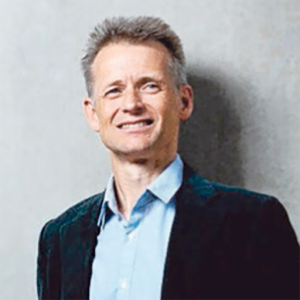
Murray Cairns
Professor Murray Cairns is head of the Centre for Complex Trait Genetics and Precision Medicine at the University of Newcastle, and the Chair of the Hunter Medical Research Institute Precision Medicine Research Program. Cairns has over 200 career publications, in journals such as Nature, Science, Cell, Nature Biotechnology, Nature Reviews Genetics, Nature Genetics, Nature Communications, Circulation.
Collectively, these have attracted more than 31,000 citations and highlight a significant international reputation in complex trait genetics and functional genomics. Cairns is an editorial board member of Epigenomics, American Journal of Medical Genetics, MicroRNA, Frontiers in Non-Coding RNA, Journal of RNA and Genomics, BioMedInformatics, International Journal of Molecular Science, Open Journal of Genomics.

Dieses Projekt wurde im Rahmen des zweistufigen Programms HORIZON-HLTH-2024-DISEASE-03 der Europäischen Union gefördert. grant agreement No 101156370.
Die geäußerten Ansichten und Meinungen sind jedoch ausschließlich die der Autorinnen und Autoren und spiegeln nicht notwendigerweise die der Europäischen Union oder von HORIZON-RIA wider. Weder die Europäische Union noch die Förderbehörde können dafür verantwortlich gemacht werden.



